- Home
- Karen Traviss
Ally Page 10
Ally Read online
Page 10
Saib made that deflating tire noise again. “I see redness.”
“What?”
“Hot moving redness.”
Lindsay came to a careful halt. She felt she was on a rolling deck, which might have been her imagination, but if she was on saturated ground then she was going to be wary. She turned to look at them: Saib had settled back on the ground in an awkward way that reminded her of an elephant, two tentacles braced on the ground in front of him like forelegs.
“Something you can see that I can’t?” She had plenty of their visual enhancements but maybe she didn’t have them all. “What is it?”
“In the heart.”
She was getting used to their idiom now. The lamp hadn’t shown the subtle detail of the bezeri language, and now she wondered if she was experiencing it or if they were already slipping into a blend of all the linguistic concepts that previous hosts had donated via c’naatat.
“Your heart,” she said carefully. “Your mind. Your brain?”
“Not now, and not mine.” said Saib. “Long before. Where is it?”
Long before. Memory. And not his memory, obviously: someone else’s. Hot moving redness. Fire.
There was no getting away from Shan Frankland. Saib was reliving her memory of facing a riot and having a petrol bomb—not petrol, but the name had survived—smashing against her riot shield in a cascade of flames. She’d talked about it: that, and the gorilla. The bloody woman could agonize over abandoning a caged gorilla but had no problem turning her back on a dying baby. My son. The fact that Shan had been right not to save his life with c’naatat didn’t make it hurt any less. And the bitter irony of her own actions wasn’t lost on her.
“It’s fire,” she said. Aquatic creatures had no concept of it, of course, but maybe they’d seen smoking hot vents on the sea bed. “That’s genetic memory kicking in. You’ll have all kinds of memories that aren’t yours. It’s a characteristic of the isenj.”
“Are isenj always angry?”
“Not that I noticed.” Lindsay began to think about an amalgam of a reactionary, genocidally inclined Saib and a fists-first-questions-later Shan. It wasn’t pretty. “That’d be Shan Frankland again.”
But maybe that was what the bezeri needed, a dose of ruthless pragmatism that went beyond self. Shan got things done. She’d changed the course of entire worlds, for good or ill. And the last of the bezeri needed that obsessive focus badly if they weren’t to become the galactic equivalent of unicorns.
They’re immortal, barring detonations. Why the hell make them do all this? And what happens if they start breeding again?
“This Frankland,” said Saib, almost chewing the syllables. “Explain who is in my mind.”
“Your people saw her. The one who brought the dead child back to you.”
“The one who failed to keep her promise to defend us.”
For some reason that stung Lindsay. She had no idea if it was species loyalty kicking in or if there was a bit of Shan too near the surface in her now. “All she had to defend you from was me.”
Saib said nothing. Keet made a loud noise like a fart and heaved himself into a strange loping movement, propelling himself along by throwing two tentacles forward and then swinging his bulk between them like a man on crutches. He didn’t seem remotely afraid of the unknown terrain and even if he didn’t know where he was going, he was moving with purpose. That was encouraging.
His tentacles seemed to be changing and becoming capable of rigidity. That was c’naatat in action. He was evolving before her eyes, as she had before his. I’m used to this. Where’s it all going to end? What am I going to become? She had a moment of heart-stopping clarity and the sense of loss almost overwhelmed her. Raw survival was a wonderfully erasing, focusing thing but she didn’t have that to distract her any longer—and she never would again.
She centered herself on a goal. It had always worked before. It had to work now.
“Here’s what you do,” she said. Keet was moving faster now and she had to break into a trot to keep up with him. Each time he grounded between swings his translucent bulk shook like rolls of blubber. “You rebuild your civilization ashore. You build it here, and you concentrate on developing technology to defend yourselves. That’s why I brought you ashore.”
“Yes, so easy,” said Saib from behind her. The steady thud-thud-thud of his movements was slower. He was keeping pace with her. “From nothing, we invent. Forty of us, none of us scientists, none of us land engineers.”
“You’re speaking, and you’re speaking English. That’s two things you couldn’t do a month ago.”
“What shall we eat here?”
“And you’re getting fluent.”
“What is to eat?”
“Everything. C’naatat can help you digest anything at all. You saw me live on seaweed.” Saib didn’t need sympathy: he needed to get a grip. “My species made the transition from the sea to the land once. Without bloody c’naatat, too, so stop whining.”
They were hunters. They’d hunted other aquatic species to extinction. Lindsay didn’t know what animals lived on Chad that would take their fancy, but the bezeri were as bad as humans when it came to exploiting their planet. And she knew the wess’har and their Eqbas cousins well enough by now to know that they wouldn’t take the bezeri’s near extinction as a plea in mitigation if they wiped out any more species. They’d “balance” them. It sounded like a euphemism, but it was literal. You killed: so you died. Maybe a dose of Shan, and Aras, in them would temper that. Maybe they’d avoid being “balanced.”
“Eqbas will protect us.” Keet loped between the trees and a shaft of bright sunlight caught him, illuminating his flesh. For a moment he was a lump of ice studded with debris, and then his color changed completely, instantly, inexplicably to an opaque mottled brown like camouflage. He blended into the landscape, his lights silent, until he burst into a vivid green display of pure panic.
He was screaming. Under stress, he defaulted to light signals. Lindsay ran up to him.
“C’naatat does that,” she said, voice calm, lights a soothing violet. She wondered if the camo could now adapt to any environment like the chameleon battledress the Royal Marines wore. “Take it easy. However it makes its decisions, it’s decided you need camo for a while.”
“I am not me,” said Keet. “I am not me!”
They’d taken the decision. They’d agreed to be infected, and she was certain they’d understood the full implications. If they hadn’t, it was too late now. It’s was irrevocable. And she had no explosives, no certainty of ending it for any of them if they decided immortality wasn’t all it was cracked up to be.
“You’ll be okay,” said Lindsay. But will I? “It gets easier. I’ve seen it. Shan was okay, Aras was okay—you remember Aras, don’t you?”
“I remember what Aras remembers,” said Saib. He edged forward, sounding like water slopping around a tank. Keet was slumped in a heap, tentacles twitching, a beached cephalopod again, not a brave pioneer. Saib stretched out a translucent limb and placed it on his comrade’s mantle. In seconds the flesh became the same mottled brown. “He remembers us. I know how we appear to him. And others like us once changed color.”
Saib used the past tense. Lindsay wanted to be sure that wasn’t just a slip in an unfamiliar language.
“You mean the birzula. The ones you wiped out.”
“Yes. Much like us. But color changers.”
It was the kind of thing Rayat could have explained to her. She knew enough about photophores to understand they weren’t all that different from the chromatophores that made terrestrial—no, Earth—squid change color.
She was looking at a genuinely terrestrial squid now; a cephalopod that had walked ashore and become—however reluctantly—a land animal. That should have stunned her. It didn’t.
“What’s upsetting you?” she asked Keet. Saib seemed resigned to the changes, sitting in a Buddha-like heap without a trace of bioluminescence. He was now total
ly mottled brown and opaque. “Is it that your body’s changing or that you’re like the race you killed?”
It was probably too complex a question for Keet; she wasn’t sure how she would have answered it herself. He levered himself up and swung off in the direction of a clearing, looking for all the world as if he had moved that way all his life. No wonder he was scared. She’d been scared, too, when her body and even her mind didn’t feel or look like her own any longer.
If you thought about c’naatat too much, it was worse than being dead. You were a tenant in your own body. You could be kicked out at any time.
But not if you’re Shan bloody Frankland.
Lindsay tried to center herself and conjure up that degree of certainty—of blinkered arrogance—that enabled Shan Frankland to take c’naatat in her stride and make it serve her. It was in her somewhere. The parasite had passed through Aras, and Ade, and Shan, picking up genetic material along the way. Something of all of them—memory too—was there within her for the taking, and if she could force the bloody thing to express the genes for photophores to give her bioluminescence, then she could wring some extra willpower out of it too.
Lindsay and her entourage of evolving squid followed the course of a stream inland. It wasn’t the image of a glittering naval career that she’d dreamed of as a young cadet.
Keet stopped. Saib shook to a halt next to him. They were now in a clearing fringed by taller trees, bulbous purple-brown columns almost like fungi but with a fine mesh of drooping branches coated in glistening dark red leaves. They were sticky to her touch. When she withdrew her hand, a soft resin pulled out in thin weblike strings and left her smelling of sickly-sweet decay. Unseen life rustled and moved in the undergrowth and when she glanced up, a stabtail was circling high overhead, pursued at a distance by a flock of some small flying creatures she hadn’t seen before.
“We can never go back,” said Saib.
“Actually, you can go back.” She hoped she was right, but she had no real idea of how c’naatat behaved in different species. Did anyone? No, not even the wess’har, and they’d had more experience of it than anyone. “Because the parasite will keep changing you. If you want to go back into the sea, fine. You’ll adapt right back to it. But you’re going to give this your best shot.”
She tried hard to stay in her own head and not slip into the external view, perhaps the combined views of the others known and unknown within her that she was finding all too easy now. A gel woman, bioluminescent and amphibious, chatting to walking, talking squid. That was her reality. She fought down panic. Shan wouldn’t panic. Shan would organize them. She’d give them tasks. She’d galvanize them.
“You start here,” said Lindsay. “It’s as good a place as any to build a town.”
She was asking an aquatic civilization to move to a new environment and start over again from the hunter-gatherer level.
It was that or hide in the sea and hope nobody else invaded. There was only one way to defend the planet against off-worlders, and that was on land. You couldn’t build weapons underwater. You had to engage a terrestrial enemy on their own terms.
Defend the planet. Whose thoughts were those?
“We call this place the Unwanted Dry Above,” said Saib.
“Nothing like a positive approach, is there?”
“We will ask if others want to make the journey.” Saib understood sarcasm well enough, but he also knew how to ignore it. “If others want this disease.”
“I’ll ask them.” It was harder to contaminate someone than she’d thought. Blood, or whatever passed for it in her circulation now, was hard to extract when you healed almost instantly, so she’d steeled herself to slicing more chunks out of her skin and pressing it into cuts in their mantles. “Can you contaminate each other? You can spread it by copulation. It would be easier.”
Saib and Keet never said a word or flashed a signal. But they were staring at her, as much as a cephalopod could.
It struck her that Shan would never have said that.
“If any of you are partners, that is,” she added.
If you’re going to live among them forever, you have to treat them the way you treat humans. You’re still thinking of them as animals.
“We lay eggs, when young,” Saib said at last. “We spawn—when young.”
“Okay,” Lindsay said. “We’ll do it the hard way, then.”
It paid not to think what an insane situation she was in. She wondered where Rayat was now. If he’d run into the Eqbas, they’d have filleted him already. But it was probably better than falling into Shan’s hands.
She hated to admit it, but she missed his encyclopedic knowledge, and—spy or not, arrogant bastard or not—she missed him, because she was still human at her core. If there was anything else to hang on to, she hadn’t identified it yet—but without another human around, she would have to.
Saib stretched out a marbled brown tentacle and it lightened into shades of clear amber pinpricked with gold lights. He seemed to be marveling at it.
“Too late to save my child,” he said.
“Too late to save mine, too,” said Lindsay.
Jejeno: cabinet rooms, now the crisis center for the Northern Assembly government
“If the Eqbas crippled the Maritime Fringe, then they didn’t cripple them enough.” Minister Shomen Eit held court in the cabinet room, silhouetted against the long window with palls of black smoke beyond him, a portal into another world. The artillery barrage was getting closer. “Are you quite well, colleague?”
Rit, still shaken and battered from the blast, was determined she would be quite well even if it killed her. She knew what she had to do now. Minister Nir Bedoi was the only other cabinet member who had managed to get to the offices. The city was in chaos. It took very little to disrupt and paralyze a city as impossibly crowded as Jejeno, and the Maritime Fringe and its allies had launched ground-to-air missiles that had struck at least seven of the tallest residential towers in the heart of the city. There was nowhere to run. The emergency relief teams were finding it impossible to move around.
“I’m bruised.” Rit’s broken quill shafts gave her an odd crawling sensation in her skin. Ralassi, close to her side, watched Shomen Eit with baleful concentration. “I’ll survive.”
“Where are your sons?” asked Eit.
“On Tasir Var. I left them there for safety and I’m glad I did.”
Eit missed them: Luot and Shimev, all she had of her late husband. They had his genetic memories, and she didn’t, so now their lives became more important than hers because what mattered, what defined isenj, was the continuation of the memory line, and they had both hers and Ual’s.
She wanted a radically different future for them from the moment she’d stood studying the dalf, the tree that should never have been. It triggered truly ancient memories. Remembering was a complex act for isenj, layer upon layer of events arranged in a hierarchy of importance coexisting with the day-to-day recall stored in the secondary brain. She recalled what mattered most to her bloodline, across millennia. Memory defined a people.
And now she recalled trees.
“The Fringe clearly managed to salvage a great deal of armament,” said Shomen Eit. “The Eqbas aren’t thorough.”
“They destroyed enough to stop the rest of Umeh threatening Wess’ej, colleague,” said Rit. “The Eqbas will finish what they started.”
And finish you.
Bedoi, who had been watching the aftermath of the missile strikes in the city from the window, turned sharply and set his beads rattling. “They’ve abandoned us. And three-quarters of our defense forces have deserted or joined the Fringe. Now we’re at the mercy of any nation that wants to overrun us.”
“Who is ‘us’?” Eit moved from screen to screen in the crisis center and from his ever-so-slightly raised quills he looked like a leader who feared defeat. “This isn’t our nation at war. This is its government utterly isolated and its population divided while invaders swarm acr
oss out borders, and are even welcomed. This is anarchy.”
Rit’s memory had suddenly become not just recalled images but also emotions. She was in a comblike grid of chambers, moving towards a brilliant white light and then tumbling down a steep incline and righting herself before rushing with many others towards a tapering column of packed earth, deep brown and peppered with small openings. She was enraged. She wanted resolution. She wanted destruction. Whatever was in that mound was a threat to everything she valued.
In her memory, she rushed to overrun and wipe out a rival colony of proto-isenj in a world of open spaces and vibrant plant life.
In the here and now, she resolved to act to protect her young. Even knowing that this was a primeval swarming reflex to defend the colony at times of crisis, she allowed it to steer her, just as it steered the troops attacking Jejeno and the civilians who turned their backs on their government to side with an enemy.
Survival advantage. That was all it was, the usually orderly and formal isenj tipping suddenly into violent chaos to reestablish an equilibrium.
“I think we should negotiate a settlement,” said Bedoi.
“If they want one.” Shomen Eit wouldn’t stay away from the window. It was a strange, impotent display of anxiety when the most important data on the state of the city was on screens around him in tidy collated displays, not in the vista beyond. “We allowed the Eqbas to land, and so there’s nothing to negotiate.”
“We can still negotiate,” said Bedoi. “Agree we made a mistake. Offer to help rebuild a credible fleet.” He had always been torn between total war on the wess’har and accepting their assistance, Ual had told Rit. It was visible now. “If our way of life needs a drastic change, maybe it’s to deal with the wess’har once and for all, by concentrating on regaining the military power we once had.”
Rit said nothing. If you were a minister whose office came from exploiting an ancient law that let you take your husband’s duties, nobody expected glittering strategic debate from you anyway.
Shomen Eit considered Bedoi for a few moments and seemed suddenly impatient with him. “The only target they have is those of us in government, colleague, because the population that survives will join them anyway. Then they’ll embark on a noble, suicidal and very, very short war against the wess’har and Eqbas—after they’ve rebuilt a few fighters. No, this requires something more intelligent. But I agree that the radical change is needed—we should have followed our instincts. Let’s see what we have to offer them in terms of matériel.”

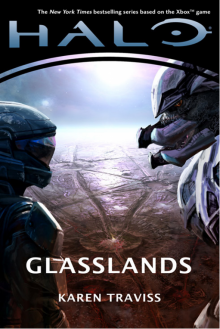 Halo: Glasslands
Halo: Glasslands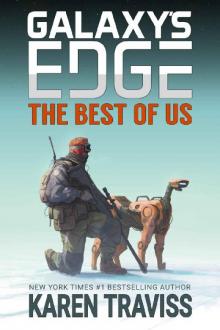 The Best of Us
The Best of Us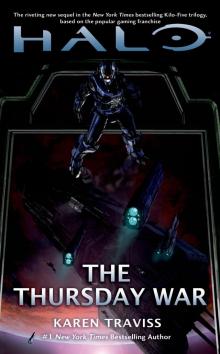 Halo: The Thursday War
Halo: The Thursday War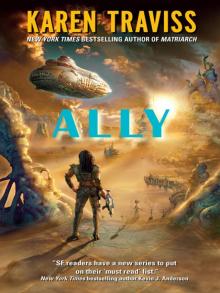 Ally
Ally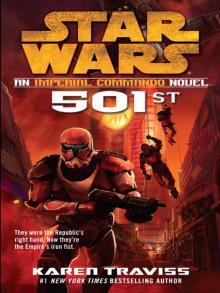 501st: An Imperial Commando Novel
501st: An Imperial Commando Novel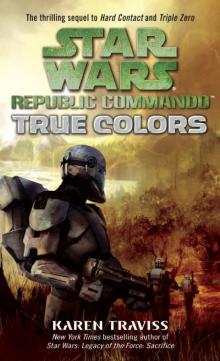 True Colors
True Colors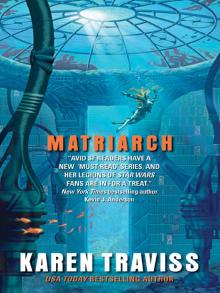 Matriarch
Matriarch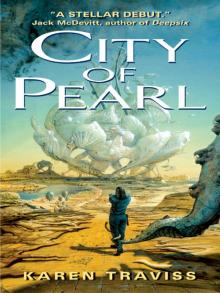 City of Pearl
City of Pearl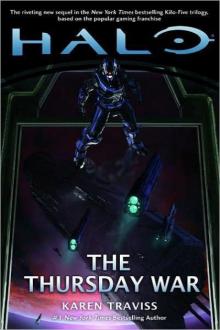 The Thursday War
The Thursday War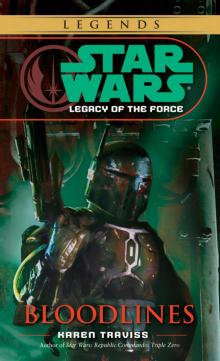 Bloodlines
Bloodlines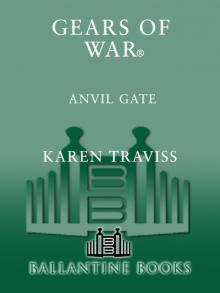 Gears of War: Anvil Gate
Gears of War: Anvil Gate Crossing the Line
Crossing the Line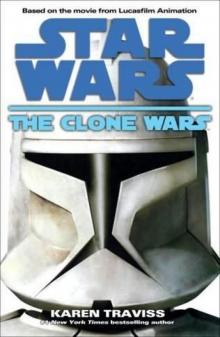 Star Wars - The Clone Wars 01
Star Wars - The Clone Wars 01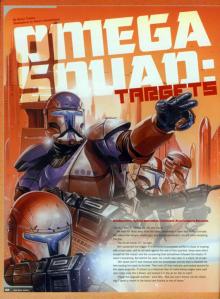 Omega Squad: Targets
Omega Squad: Targets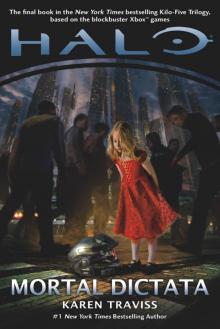 Halo®: Mortal Dictata
Halo®: Mortal Dictata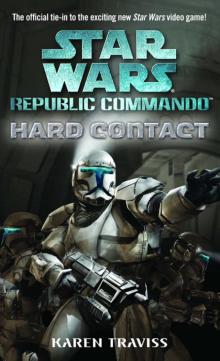 Hard Contact
Hard Contact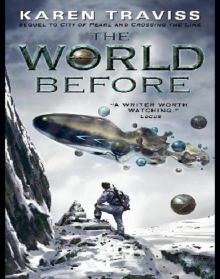 The World Before
The World Before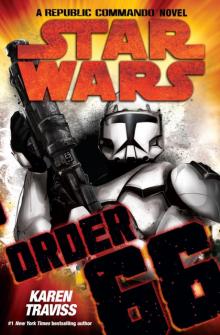 Order 66
Order 66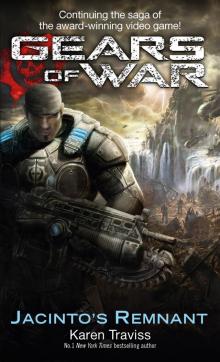 Gears of War: Jacinto's Remnant
Gears of War: Jacinto's Remnant Sacrifice
Sacrifice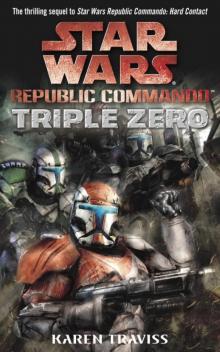 Triple Zero
Triple Zero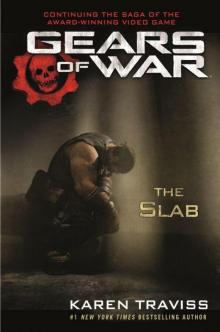 Gears of War: The Slab (Gears of War 5)
Gears of War: The Slab (Gears of War 5)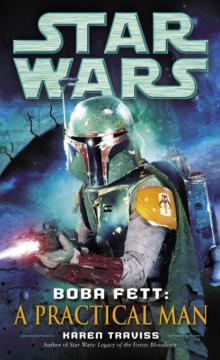 NEW JEDI ORDER: BOBA FETT: A PRACTICAL MAN
NEW JEDI ORDER: BOBA FETT: A PRACTICAL MAN Going Grey
Going Grey Star Wars: Boba Fett: A Practical Man
Star Wars: Boba Fett: A Practical Man Revelation
Revelation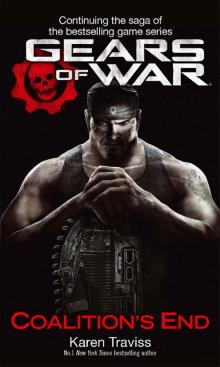 Coalition's End
Coalition's End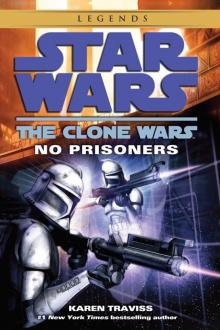 No Prisoners
No Prisoners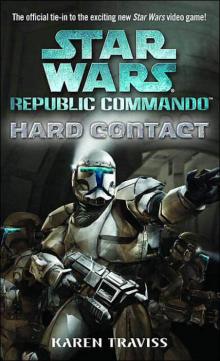 Star Wars Republic Commando: Hard Contact
Star Wars Republic Commando: Hard Contact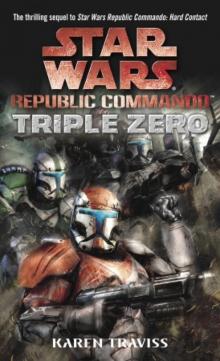 Star Wars: Republic Commando: Triple Zero rc-3
Star Wars: Republic Commando: Triple Zero rc-3 The Clone Wars
The Clone Wars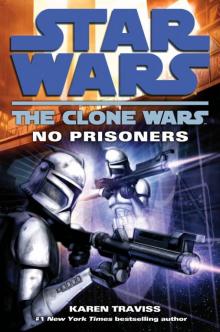 The Clone Wars: No Prisoners
The Clone Wars: No Prisoners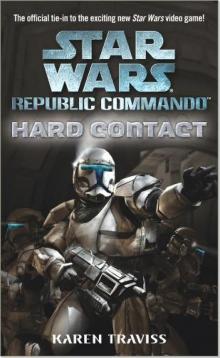 Star Wars: Republic Commando: Hard Contact rc-1
Star Wars: Republic Commando: Hard Contact rc-1 Judge
Judge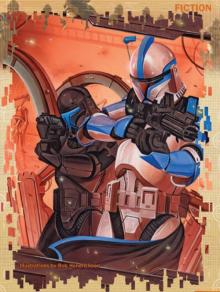 Omega Squad: Targets rc-4
Omega Squad: Targets rc-4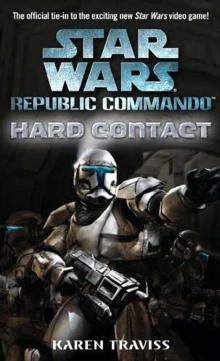 Star Wars - Republic Commando - Hard Contact
Star Wars - Republic Commando - Hard Contact